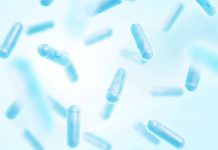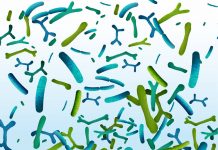
Co-Written by: Heather Allsop, RNCP  Could changing a child’s diet really make such a difference?
Could changing a child’s diet really make such a difference?
Thousands of children have recovered from autism using the biomedical approach. “Biomedical” involves nutrition, supplements, emotional support and more. Based on science, this approach delivers results [4].
First – introduce more nutrients:
Many children with autism are picky eaters, and need more nutrients than what they are consuming. Also, with the stresses on their body associated with autism, they may have a greater need for nutrients than a non-autistic sibling or classmate.
Eliminate foods that create problems:
Many autistic children experience a significant reduction in symptoms when gluten (the protein in wheat and some other grains) and casein (a protein from dairy products) are removed from their diet. This relates to the fact that most children with autism have digestive issues, and cannot digest gluten and casein.
Partially digested gluten and casein (peptides) can wreak havoc in at least two ways [4]. First, the immune system is placed on “high alert” as if it senses an “invader”. This is similar to a food intolerance reaction as the food they have eaten seems to disagree with them. Second, these peptides behave almost like “drugs” when they hit the blood stream. Testing can confirm the presence of these peptides in the child’s blood and urine. The peptides can affect the central nervous system in terms of perception, cognition, behaviour, and emotions [5]. Parents of autistic children often tell me that their child seems to be “in their own world”, as if they were medicated.
By removing gluten and casein peptides from the diet, we can eliminate the affects these things have on a child’s brain and nervous system. For the child, this can mean better concentration, calmer behavior, and better communication.
What is happening in the gut?
When the intestine or gut is healthy, it acts as a barrier – preventing undigested food (like peptides) from passing into the blood. When peptides pass through the gut wall into the blood, we say that the gut is ‘leaky’. Dr. Wakefield, a gastroenterologist, and others have found that children with autism have an above-average incidence of intestinal problems (like Celiac disease and chronic diarrhea) and that these conditions are more severe than in non-autistic children (2005). A ‘leaky gut’ will allow gluten and casein peptides (and possibly other food proteins or toxins) to pass into the blood.
Many children with autism try to soothe pains in their tummies by bending over the arm of a chair, the edge of a coffee table or even by rocking back and forth. Diarrhea or constipation may or may not be present, however, many parents report bad-smelling, forceful diarrhea, and thus have a hard time toilet training.
It’s war! Good guys vs. Bad guys in the gut:
A healthy gut contains over 400 types of micro-organisms, most of which are “good” and belong there [1]. Some factors, such as antibiotics or infection can upset this balance, and the “not-so-good” organisms (like yeast) out number the good guys. Many autistic children recover this balance after treatment to decrease yeast [4]. To help fight yeast, dietary measures include avoiding sugar, refined carbohydrates (ex: white flour), and even yeast itself.
Be aware of the healthy vs. un-healthy micro-organisms:
HEALTHY MICRO-ORGANISMS:
- Are a key part of the immune system
- Digest food
- Detoxify
- Produce B vitamins
- Protect colon against fungi and parasites
- Keep walls of colon clean and healthy
UNHEALTHY MICRO-ORGANISMS (Yeast + other ):
- Release toxins
- Are toxic
- Can irritate intestine
- Can cause “leaky gut”
- Can spread throughout the body and lead to eczema, allergies, pain, depression, etc.
The effect of food additives:
Each body cell is like a little factory. What it makes depends on what type of tissue the cell is from. All cells make waste or toxins, which are detoxified mainly by the liver, kidneys, lungs and colon. Children with autism are often poor detoxifiers [5], meaning some toxins stay in their body – possibly affecting behaviour, learning ability, gut health, and more. To minimize their toxic load, eliminate food additives such as artificial flavours, artificial sweeteners, colours, and preservatives from the child’s diet.
Nutritional supplementation:
Many nutritional supplements have been shown to help with the recovery from autism including:
- Essential Fatty Acids (EFAs) – fats the body cannot make on it’s own
- Probiotics – healthy micro-organisms – “good guys”
- Antioxidants – (ex. vitamins A, E, and C)
- Zinc – (a mineral which helps fight infections)
Getting help with the new diet:
Nutrition is a key factor when it comes to treating autism. It is not wise to immediately go Gluten-free and Casein-Free because many children (especially those over three) will resist drastic changes. Talk to an experienced Nutritionist or see your family doctor for advice on where to go from here.
To read part 2 of this article on Autism, click here.
References:
1. Erasmus, U. Probiotic Blends, Flora Health, 2006.
2. Feingold, B.F., MD. Why Your Child is Hyperactive. Random House, New York, 1975.
3. McGuinnis, W., MD. Oxidative Stress in Autism. Treating the Biology of Autism, Pontiac, Michigan, April 2004.
4. Pangborn, J., PhD, and Baker, S.M., MD. Autism: Effective Biomedical Treatments, Autism Research Institute, San Diego, 2005.
5. Shattock, P. Environmental Factors in Autism: implications for therapy and prevention, Treating the Biology of Autism, Pontiac, Michigan, April 2004.
6. Wakefield, A., MD. Integration of Pathology in the Gut Brain Axis, MiniDAN, Toronto, 2005.
7. Watson, B., ND, and Smith, L., MD. Gut Solutions. Renew Life Press, Clearwater, 2003.










